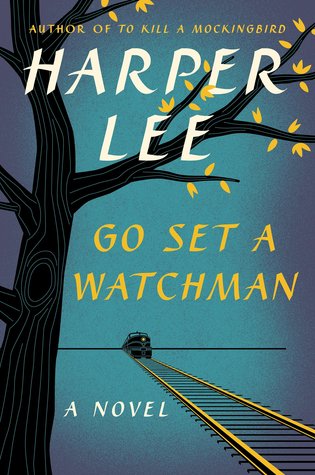 Go Set a Watchman, by Harper Lee
Go Set a Watchman, by Harper LeeI debated whether to read Go Set a Watchman for quite some time, but finally curiosity got the best of me! It's worth reading if only to explore this progression of a writer and a book, as it preceded To Kill a Mockingbird.
What I liked about it:
- Scout, or Jean Louise, is a grown woman. And she is a crusty, opinionated, and stubborn one at that.
- As one reviewer noted, Go Set a Watchman is not the book we wanted about race...but it was the book we need. Others have said Atticus was always a racist.
- The writing, at times, was beautiful...when it was not meandering.
- It showed a slice of history, and perhaps a more realistic one, in the South during that era.
- Oh, the meandering! Lee often goes off on various flashbacks, and I found myself questioning when we would get back to the main story. Not a good sign, and it reflects the need for the novel to be polished...which it was by the time To Kill a Mockingbird was published.
- Some characters are mere shadows (Jem and Dill) of their evolved selves. I'm not sure why she even included them in this draft, as they appear only as memory fragments.
- Many reviews discuss Atticus' racism while ignoring Jean Louise's own racism. Perhaps she wasn't as flawed as Atticus, but she was no saint. As "the book we need," it is a better representation of the south during this era than To Kill a Mockingbird, because it showed the many layers of racism. Yes, Atticus and Jean Louise's love interest Hank were worse, but Scout too was racist. Although Jean Louise was horrified by the KKK and its ilk, she was just as horrified by school segregation and interracial marriage.
I'm glad I read it if only because I'm a curious reader and wanted to form my own opinion (similar to why I read Twilight). But it's easy to see why Harper Lee's first editor advised her to take a different tack.
Ultimately, this book disappoints because Jean Louise is an old-school Southerner through and through, in spite of the higher hopes the reader might have in the beginning and middle of the novel. As Michiko Kakutani wrote in The New York Times, "The difference is that Mockingbird suggested that we should have compassion for outsiders like Boo and Tom Robinson, while Watchman asks us to have understanding for a bigot named Atticus."
No comments:
Post a Comment